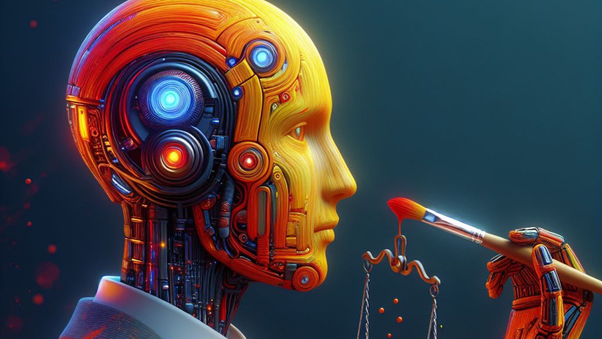
In a landscape where artificial intelligence (AI) has become a transformative force, 2024 is poised to reshape U.S. copyright law in response to the proliferation of generative AI. Notably, technology giants such as Microsoft-backed OpenAI, Meta Platforms, Midjourney, and others have fueled this transformation, triggering a surge in copyright cases. Writers, artists, and copyright holders contend that AI's success is built upon their intellectual property, leading to a legal battleground.
Judges have exhibited skepticism toward plaintiffs' infringement claims based on AI-generated content despite the influx of lawsuits. However, the crux of the matter involving AI companies potentially infringing on a massive scale by training systems with data scraped from the internet still needs to be addressed by the courts.
The Stakes for the AI Industry
Tech companies, including industry leaders like Meta and Microsoft, caution that these lawsuits pose substantial threats to the burgeoning AI industry. Plaintiffs argue that these companies owe them compensation and acknowledgment for utilizing their work without permission. The intersection of technology and intellectual property rights forms the epicenter of a legal battle that could reshape the future of AI.
Legal Showdown: The Cases
Various groups of authors have initiated a series of proposed class-action lawsuits in 2024, including luminaries like John Grisham, George R.R. Martin, Sarah Silverman, and former Arkansas governor Mike Huckabee. Concurrently, copyright holders such as visual artists, music publishers, Getty Images, and the New York Times have also joined the legal fray. Their collective contention is that tech companies infringe copyrights by incorporating their materials into AI training, demanding monetary damages and court orders to prevent further misuse.
Tech companies have assembled formidable legal defenses, leveraging teams from the nation's largest law firms. They assert that AI training mirrors how humans learn and falls within the realm of "fair use" under copyright law. Comparing it to a child learning language through exposure to speech, stories, and songs, Meta defended its approach to the U.S. Copyright Office.
AI proponents argue that adverse rulings would cripple the industry, asserting that copyright law has been the bedrock protecting their data handling practices. Silicon Valley venture capital firm Andreessen Horowitz warns that imposing copyright liability on AI model creators would impede their development significantly.
Copyright Owners' Perspective
Copyright owners, however, point to the immense success of AI programs like OpenAI's ChatGPT and argue that companies have the financial means to compensate for using their copyrighted materials. The Authors Guild contends that licensing fees for copyrighted materials used to train large language models should reflect the substantial value attributed to professionally created texts.
The Ongoing Thomson Reuters Lawsuit
One pivotal case involves Thomson Reuters, accusing Ross Intelligence of illegally copying thousands of "headnotes" from Westlaw to train an AI-based legal search engine. The case, set to trial, could establish a precedent on fair use and other pivotal questions in AI copyright litigation.





